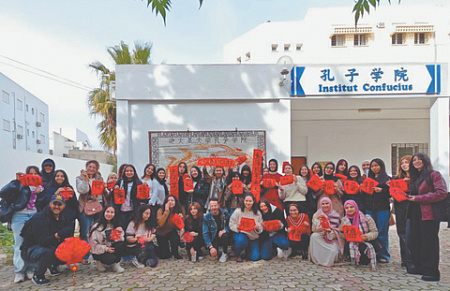
A stark report from the U.S. Senate Committee on Foreign Relations claims that the Trump administration’s policies have inadvertently created a power vacuum on the world stage, allowing China to rapidly expand its influence and position itself as a more attractive global leader than the United States. The document, prepared by the Democratic opposition, argues that Washington’s withdrawal from international aid programs, reduced funding for scientific research, and alienation of traditional allies have opened the door for Beijing to step in.
According to the report, China is strategically seizing this opportunity through a multifaceted campaign. This includes increasing its financial contributions to international bodies like the World Health Organization, establishing a global network of Confucius Institutes for cultural and language promotion, and providing substantial economic assistance to developing nations. Democrats warn that these actions are part of a concerted effort by Beijing to build a world that admires and seeks to emulate China. Senator Jeanne Shaheen, a leading Democrat on the committee, framed the issue as a bipartisan concern, stating that “the single greatest national security and economic threat to the United States’ future is China,” and criticizing the administration for decisions that undermine a coordinated response.
Beyond the political alarm in Washington, analysts are closely examining the nature of China’s growing influence, often centered on the concept of “soft power”—a term originally coined in America. According to Alexander Lomanov, Deputy Director at IMEMO RAS, China enthusiastically adopted this concept two decades ago, aligning it with its traditional view of achieving influence not through military conflict, but through the spread of its culture and worldview. Today, Beijing’s interpretation has broadened to include fostering intellectual dialogues, creating influential think tanks, and using international platforms like its “Global Civilization Initiative” to project its vision on the world stage.
This strategy presents a sharp contrast to the current U.S. approach. While Washington increasingly speaks the language of tariffs and transactional deals, China champions a narrative of inclusivity and mutually beneficial cooperation, particularly resonating with countries in the Global South. This message is backed by significant investment in partner economies and a push to showcase China as a dynamic, open country with a rich cultural heritage. In this context, Confucius Institutes, while facing scrutiny in the West, are reportedly gaining traction as a tool for cultural diplomacy across developing nations where interest in the Chinese language is surging.
However, not all experts are convinced that China is winning hearts and minds through genuine appeal. Alexander Lukin, Director of the Institute of China and Contemporary Asia RAS, suggests that what is often labeled as Chinese soft power is more accurately described as financial leverage. He posits that China uses its immense wealth to tie poorer countries to its interests, rather than persuading them through the power of its ideas. This perspective reframes Beijing’s influence as a form of “sharp power” rooted in economic inducement and pressure.
Furthermore, Lukin argues that a key element of China’s outreach is the promotion of its authoritarian governance model as an effective path to economic prosperity—a direct challenge to the Western democratic consensus. This message, however, has not been universally embraced, with polls in regions like South Korea and Latin America showing a decline in China’s attractiveness. The effectiveness of Beijing’s state-driven propaganda is also in question, as centrally-scripted narratives about Xi Jinping’s ideas often fail to resonate with foreign audiences, leading to a disconnect between the reported successes of the campaign and its actual impact on the ground.
